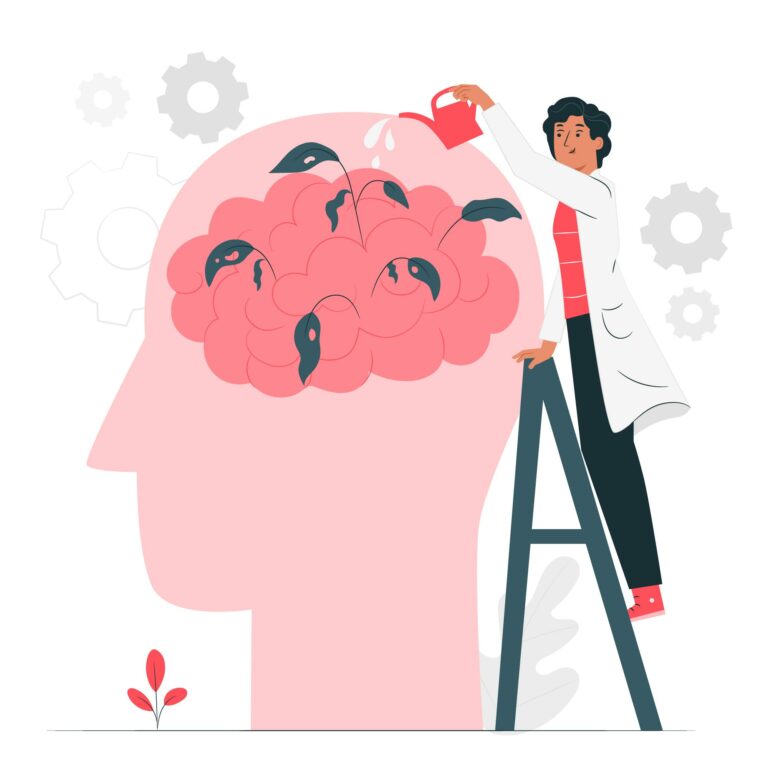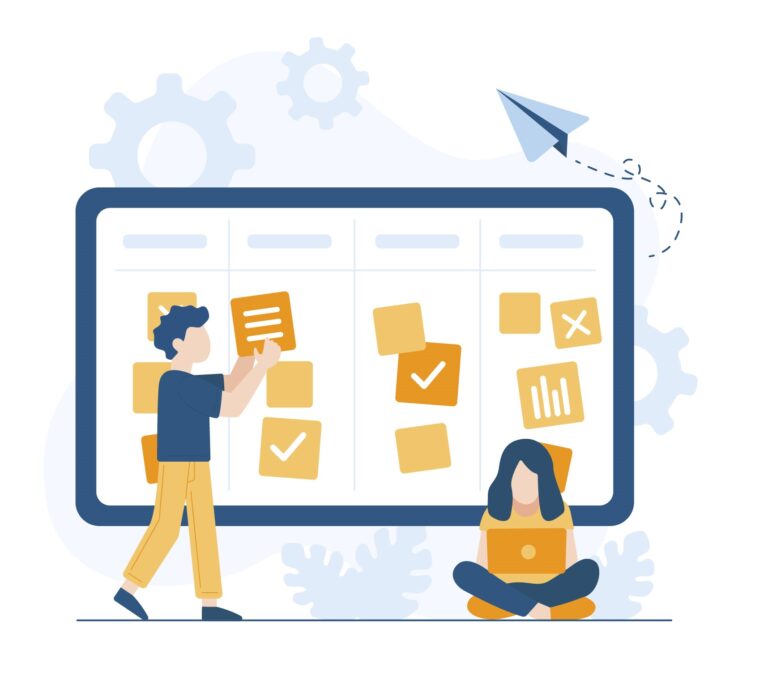Adapting Leadership in the Age of AI: A Guide for Modern Managers
Exploring the nexus of AI project management tools and leadership, this article guides modern managers through adapting to the age of AI. It covers AI’s role in enhancing strategic decisions, talent management, boosting team productivity, and the ethical dimensions leaders must navigate. Additionally, it emphasizes the importance of fostering an AI-ready culture and preparing for the inevitabilities of continuous change. By embracing AI’s capabilities while maintaining ethical standards and encouraging adaptability, leaders can steer their teams toward innovation and success in a future shaped by AI.
I. Introduction
A. The Evolution of Leadership in the Digital Era
In recent years, the digital era has profoundly transformed the landscape of leadership. Gone are the days when a leader’s role was confined to traditional management practices and decision-making based on intuition or limited information. Today, the digital era has ushered in a new paradigm where data, technology, and innovation play pivotal roles in guiding a leader’s vision and strategy.
The advent of the internet and digital technologies has democratized information, enabling leaders to access a wealth of data to inform their decisions. Social media and digital communication tools have also transformed how leaders engage with their teams and stakeholders, promoting transparency and fostering a more inclusive and collaborative work environment. Moreover, the rise of remote work has challenged leaders to adapt their management styles to lead distributed teams effectively, relying heavily on digital tools to maintain productivity and cohesion.
As we delve deeper into the 21st century, leaders are also recognizing the importance of fostering a culture of continuous learning and innovation to stay ahead in a rapidly evolving digital landscape. The digital era demands agility, forward-thinking, and an openness to change, traits that are now indispensable for modern leadership.
B. Why Understanding AI is Crucial for Today’s Leaders
Artificial Intelligence is no longer a futuristic concept but a present reality that is reshaping industries and organizational processes. For today’s leaders, understanding AI is not just about leveraging new technologies but about anticipating and navigating the profound changes AI brings to the workplace, the economy, and society at large.
AI’s role in enhancing decision-making, automating routine tasks, and creating new business models means leaders must be knowledgeable about AI’s capabilities and limitations. This understanding is crucial for identifying opportunities for AI to add value to their organizations, whether through improved efficiency, innovation, or customer engagement.
Moreover, as AI technologies advance, ethical considerations and the impact on the workforce become increasingly important. Leaders must grapple with questions around data privacy, bias in AI algorithms, and the implications for job displacement and skill requirements. Thus, a deep understanding of AI enables leaders to navigate these challenges thoughtfully, ensuring their organizations use AI responsibly and inclusively.
In essence, AI literacy has become a critical component of leadership in the digital era. Leaders equipped with this knowledge can drive their organizations forward, harnessing AI’s potential while mitigating its risks, and shaping a future where technology and humanity coexist in harmony.
II. The Basics of AI for Managers
A. Demystifying AI: What Every Leader Should Know
At its core, Artificial Intelligence is about creating systems capable of performing tasks that typically require human intelligence. These tasks include recognizing patterns, learning from experience, understanding natural language, and making decisions. AI can be as simple as a set of rules that automate decision-making or as complex as deep learning models that mimic the human brain’s neural networks.
For leaders and managers, grasping the fundamentals of AI is not just about the technology itself but understanding its potential impact on business strategies and operations. AI technologies such as machine learning, natural language processing, robotics, and computer vision are driving innovations across various sectors, from enhancing customer service with chatbots to improving diagnostic accuracy in healthcare.
Understanding AI also means recognizing its limitations and the importance of human oversight. AI systems are only as good as the data they are trained on, which can sometimes lead to biased or inaccurate outcomes if not carefully managed. Hence, leaders must understand the ethical considerations and ensure that AI is used responsibly within their organizations.
B. How AI is Changing the Workplace
AI is transforming the workplace in profound ways, reshaping job roles, workflows, and the skills required for the future workforce. Automation of routine tasks is one of the most immediate impacts, freeing up employees to focus on more strategic and creative tasks that AI cannot perform. This shift not only boosts productivity but also enhances job satisfaction by reducing the monotony of repetitive tasks.
Moreover, AI is enabling more personalized and efficient ways of working. For example, AI-powered analytics can provide managers with insights into team performance and individual employee engagement, helping to tailor support and development opportunities more effectively. AI-driven tools are also facilitating collaboration among distributed teams, breaking down geographical barriers and enabling a more flexible approach to work.
However, the introduction of AI into the workplace also presents challenges. There’s a growing need for skills development and training to ensure employees can work alongside AI effectively. Additionally, leaders must navigate the cultural and organizational changes required to integrate AI into their business practices, promoting an environment that values innovation and continuous learning.
The impact of AI on the workplace is multifaceted, offering significant opportunities for improvement and innovation. For managers, staying informed about AI developments and understanding how to leverage these technologies responsibly will be key to leading successfully in the age of AI.
III. Enhancing Decision Making with AI
A. Data-Driven Leadership: Leveraging AI for Strategic Decisions
In the age of AI, data-driven leadership has emerged as a pivotal approach for making strategic decisions. AI empowers leaders by processing and analyzing vast amounts of data at an unprecedented speed, uncovering insights that might not be visible to the human eye. This ability to harness big data effectively allows leaders to predict trends, optimize operations, and make more informed decisions that drive organizational success.
AI tools can identify patterns and correlations within data that relate to consumer behavior, market trends, and operational efficiencies. By leveraging these insights, leaders can anticipate market changes, tailor products or services to meet customer needs better, and identify areas within their operations that can be optimized for cost savings or improved performance.
However, the transition to data-driven decision-making necessitates a cultural shift within organizations. Leaders must champion a mindset that values data as a critical asset, encouraging their teams to base decisions on data and analytics rather than intuition alone. This shift not only enhances strategic planning but also promotes a more agile and responsive organization that can quickly adapt to changing market dynamics.
B. AI Tools for Analytics and Insights
AI tools for analytics and insights are revolutionizing the way organizations approach data analysis, offering advanced capabilities that extend far beyond traditional analytics methods. These tools employ machine learning algorithms and predictive analytics to provide deeper insights into business operations, customer behavior, and market trends.
One of the key benefits of AI analytics tools is their ability to process and analyze data in real-time, allowing organizations to respond swiftly to emerging opportunities or threats. For example, AI-powered sentiment analysis can monitor social media and customer feedback channels to gauge public opinion about a product or brand, enabling companies to adjust their strategies accordingly.
Moreover, predictive analytics can forecast future trends and behaviors, helping organizations to plan more effectively. Whether predicting customer demand, identifying potential supply chain disruptions, or anticipating market shifts, AI tools enable leaders to make strategic decisions with a higher degree of confidence.
Implementing AI analytics tools also requires organizations to invest in data literacy and infrastructure. Ensuring data quality, integrating disparate data sources, and training teams to interpret and act on insights generated by AI are crucial steps in maximizing the value of these advanced analytics capabilities.
In conclusion, AI tools for analytics and insights are indispensable for modern leaders seeking to navigate the complexities of today’s business environment. By leveraging AI to uncover actionable insights, organizations can enhance decision-making, drive innovation, and maintain a competitive edge in their respective industries.
IV. AI in Talent Management and HR
A. Revolutionizing Recruitment with AI
Artificial Intelligence is transforming the recruitment landscape, offering innovative solutions to traditional challenges faced by HR professionals. AI-driven tools are now capable of streamlining the recruitment process, from sourcing candidates to final selection, thereby enhancing efficiency and objectivity.
One of the standout contributions of AI in recruitment is its ability to parse through vast amounts of resumes quickly, identifying candidates who best match the job requirements. This not only saves valuable time but also helps in reducing unconscious bias, making the hiring process more inclusive. AI algorithms are trained to focus on skills and experiences relevant to the position, rather than being swayed by a candidate’s background or demographics.
Furthermore, AI is improving candidate engagement through chatbots. These AI-powered assistants are available 24/7 to answer queries, provide updates, and guide applicants through the recruitment process. This constant interaction improves the candidate experience, keeping them engaged and informed throughout.
However, while AI significantly enhances the recruitment process, it’s crucial for HR professionals to maintain a human touch. Decision-making should balance AI insights with human judgment, especially in evaluating soft skills and cultural fit, which are as critical as technical competencies.
B. Personalized Learning and Development Plans
AI is equally transformative in the realm of learning and development (L&D), offering personalized and adaptive learning experiences for employees. Traditional one-size-fits-all training programs are being replaced by AI-driven platforms that cater to the unique learning preferences and pace of individual learners.
These AI systems analyze an employee’s current skills, job requirements, and career aspirations to create customized learning paths. By leveraging data on learning behaviors and performance, AI can suggest courses, workshops, and content that are most relevant and engaging to the learner. This targeted approach not only makes learning more effective but also more efficient, as employees can focus on developing skills that are directly beneficial to their roles and career growth.
Moreover, AI in L&D facilitates continuous learning and skill development. With the rapid pace of technological advancements, keeping skills up-to-date is crucial. AI-driven learning platforms can identify emerging skill gaps and recommend learning modules to address them promptly, ensuring employees and organizations remain competitive.
Integrating AI into L&D strategies also offers insights into the effectiveness of training programs. Analytics provided by AI can track progress, engagement, and the impact of training on performance, allowing for data-driven decisions on future L&D investments.
In summary, AI’s role in talent management and HR is revolutionary, offering tools that not only streamline recruitment but also foster a culture of personalized and continuous learning. As these technologies evolve, they promise to further enhance the human resource function, making it more strategic and impactful in developing a skilled, engaged, and diverse workforce.
V. Improving Team Productivity and Efficiency
A. AI Tools for Project Management
The advent of AI in project management has significantly elevated the capabilities of teams to manage projects more efficiently and effectively. AI tools in this sphere have become indispensable assets, offering sophisticated solutions that streamline project workflows, enhance communication, and facilitate decision-making processes.
One of the key advantages of AI project management tools is their predictive capabilities. By analyzing historical data and current project metrics, AI can forecast potential project delays, budget overruns, and resource constraints before they become critical issues. This foresight allows managers to make proactive adjustments, ensuring projects remain on track and within budget.
Furthermore, AI-driven project management software excels in task allocation and prioritization. By understanding the strengths and workloads of team members, AI can intelligently assign tasks to the most suitable individuals, optimizing team productivity and balancing workloads effectively.
Collaboration is another area where AI tools shine. They facilitate seamless communication across teams, breaking down silos and ensuring all stakeholders are aligned with project goals. Features like automated meeting summaries and action item tracking keep everyone informed and accountable, driving project momentum forward.
B. Automating Routine Tasks to Focus on Strategic Goals
The automation of routine tasks is perhaps one of the most tangible benefits AI brings to the workplace. By taking over mundane and repetitive tasks, AI allows team members to dedicate more time and energy to strategic thinking and creative problem-solving, areas where human intelligence holds the upper hand.
Automation can range from simple scheduling and email filtering to more complex processes like data entry and analysis. For instance, AI can automatically update project dashboards, generate reports, and even suggest optimizations for workflows based on real-time data. This not only speeds up processes but also reduces the risk of human error, enhancing overall project quality.
Moreover, automating routine tasks with AI can significantly improve job satisfaction. It removes the tedium associated with such tasks, freeing employees to engage in more meaningful and rewarding work. This shift can lead to higher levels of engagement, innovation, and retention within teams.
However, successful automation requires thoughtful implementation. Leaders must ensure that AI tools are integrated seamlessly with existing workflows and that teams are adequately trained to leverage these technologies effectively. Furthermore, maintaining a human touch in automated processes is crucial to address complex challenges and ensure personalized customer experiences.
In conclusion, AI tools for project management and the automation of routine tasks are game-changers in improving team productivity and efficiency. By harnessing these technologies, organizations can not only achieve operational excellence but also foster a more innovative, satisfied, and strategically focused workforce.
VI. Navigating Ethical Considerations
A. AI and Privacy: Balancing Innovation with Ethics
In the realm of AI, the intersection of innovation and privacy presents a complex ethical landscape for leaders to navigate. The power of AI to analyze and leverage large datasets has unlocked unprecedented opportunities for progress and efficiency. However, this same capability raises significant privacy concerns, especially regarding how personal data is collected, used, and shared.
The crux of balancing AI and privacy lies in adopting ethical frameworks that prioritize the protection of individual privacy rights while still harnessing the benefits of AI technologies. Leaders must ensure their AI initiatives comply with global data protection regulations, such as the General Data Protection Regulation (GDPR) in Europe, which sets a benchmark for privacy and security.
Transparency is key. Organizations should be clear about the data they collect, the purpose of its use, and who has access to it. Moreover, implementing robust data security measures and offering users control over their data can build trust and demonstrate a commitment to privacy.
Ethical AI use extends beyond compliance; it’s about fostering a culture that values and protects privacy at every level of operation. By embedding privacy considerations into the design and deployment of AI systems, leaders can create a harmonious balance between innovation and ethics.
B. Bias in AI: Challenges for Leaders
Bias in AI systems, whether in recruitment, credit scoring, or law enforcement tools, poses significant ethical challenges for leaders. Bias can creep into AI models through skewed datasets, flawed algorithms, or the subjective perspectives of those who create them. The consequences can perpetuate discrimination and inequality, undermining trust in AI technologies.
Leaders play a crucial role in addressing AI bias. It starts with acknowledging that bias exists and understanding its origins and potential impacts. A proactive approach involves diverse teams in AI development to ensure multiple perspectives are considered, thereby reducing the risk of unconscious biases influencing AI models.
Regular audits of AI systems for biased outcomes are essential. Leaders should invest in tools and methodologies that can detect and mitigate bias, ensuring AI systems perform fairly across different demographics. Moreover, fostering an organizational culture that prioritizes fairness and inclusivity can guide the ethical development and application of AI.
Addressing AI bias is not just a technical challenge but a leadership imperative. By taking decisive steps to combat bias, leaders not only uphold ethical standards but also enhance the credibility and effectiveness of AI solutions. As AI continues to shape our world, ethical leadership will be paramount in realizing the technology’s full potential while safeguarding societal values.
VII. Cultivating an AI-Ready Culture
A. Encouraging AI Literacy Among Your Team
In an era where AI is rapidly becoming integral to operations across industries, cultivating AI literacy among teams is not just beneficial; it’s necessary. Leaders must take proactive steps to ensure their teams understand AI’s potential uses, ethical considerations, and the skills required to leverage it effectively. This starts with education and training, providing resources and learning opportunities that demystify AI and make it accessible to everyone, regardless of their technical background.
One effective approach is to integrate AI literacy into ongoing professional development programs. Workshops, webinars, and online courses can cover AI basics, how AI can be applied in your specific industry, and the ethical implications of AI technology. Encouraging a culture of curiosity and continuous learning will empower team members to explore how AI can enhance their work.
Furthermore, real-world examples of AI in action within the organization can serve as powerful case studies. Sharing successes and lessons learned from AI projects not only boosts literacy but also inspires confidence in using these technologies. By making AI literacy a strategic priority, leaders can build a foundation for innovation and future success.
B. Fostering Innovation and Adaptability
Creating a culture that embraces innovation and adaptability is crucial for leveraging AI effectively. In the face of AI’s transformative potential, organizations must be prepared to evolve, rethinking traditional workflows and being open to new ways of working. Leaders play a key role in championing this adaptability, setting an example by embracing change and encouraging their teams to do the same.
One strategy for fostering innovation is to encourage experimentation. Giving teams the freedom to experiment with AI applications and learn from both successes and failures can lead to innovative solutions. It’s important for leaders to create a safe environment where taking calculated risks is encouraged, and failure is seen as a valuable learning experience.
Additionally, soliciting input and ideas from all levels of the organization can unleash creativity and lead to unexpected applications of AI. An inclusive approach to innovation ensures a diversity of perspectives and ideas, driving more effective and creative uses of AI technology.
Finally, adaptability requires a willingness to change course based on new information or outcomes. As AI technologies and their applications continue to evolve, so too must organizational strategies and practices. Leaders who cultivate a culture of innovation and adaptability ensure their organizations can thrive in the dynamic landscape of AI-driven change.
By focusing on these strategies, leaders can nurture an environment that not only understands AI but is also ready to innovate and adapt with it. This AI-ready culture is a key asset in the modern business world, driving sustainable growth and competitive advantage.
VIII. The Future of Leadership with AI
A. Predictions for AI in Leadership
As we stand on the brink of further advancements in AI, its impact on leadership is poised to deepen, with several predictions highlighting the trajectory of this evolution. AI is expected to further refine decision-making processes, enabling leaders to make more informed, strategic choices with an unprecedented level of data analysis and insight. This capability will not only enhance operational efficiency but also offer a competitive edge in rapidly changing markets.
In addition, AI is likely to democratize leadership by making sophisticated analytics and decision-support tools more accessible across levels of an organization. This accessibility could flatten traditional hierarchies, promoting a more collaborative and inclusive approach to leadership where ideas and insights from various levels are valued and leveraged.
Furthermore, as AI technologies become more integrated into daily operations, leaders will need to navigate the ethical and moral implications of these tools, from ensuring data privacy to addressing biases in AI algorithms. This ethical stewardship will become a core aspect of leadership roles, emphasizing the importance of transparency and accountability.
B. Preparing for Continuous Change
To thrive in an AI-enhanced future, leaders must embrace a mindset of continuous learning and adaptability. This entails staying abreast of AI developments and understanding their potential impact on the industry and organization. Leaders should foster a culture of innovation where experimentation with new technologies is encouraged, and failure is seen as a step towards discovery and growth.
Investing in AI literacy and skills development across the organization will be crucial. Leaders should prioritize training programs and resources that empower employees to work effectively with AI tools and contribute to a culture of continuous improvement.
Moreover, preparing for continuous change involves cultivating resilience within teams. As AI induces shifts in job roles and industry landscapes, supporting employees through transitions, encouraging adaptability, and maintaining open lines of communication will be key leadership qualities.
In conclusion, the future of leadership with AI heralds a period of significant transformation. By anticipating these changes and preparing accordingly, leaders can ensure their organizations not only survive but thrive in the AI-driven landscape. Embracing the opportunities presented by AI, while navigating its challenges with foresight and integrity, will define the next generation of effective leadership.
IX. Conclusion
A. Key Takeaways for Modern Managers
As we reflect on the transformative journey of leadership in the age of AI, several key takeaways stand out for modern managers. First and foremost, the rise of AI in the workplace is not just a technological shift but a strategic opportunity that requires new leadership perspectives and skills. Understanding AI’s capabilities and limitations is essential for leveraging its potential to enhance decision-making, productivity, and innovation within organizations.
Leaders must prioritize fostering an AI-ready culture that encourages continuous learning, adaptability, and ethical responsibility. This involves not only investing in AI literacy and skills development but also addressing the ethical implications of AI technologies to ensure their responsible use. Encouraging a culture of innovation, where experimentation is valued and failure is seen as a learning opportunity, will be crucial in staying agile and responsive to the rapid advancements in AI.
B. The Ongoing Journey of Leadership Evolution with AI
The evolution of leadership with AI is an ongoing journey, characterized by continuous change and learning. As AI technologies advance, leaders must remain vigilant, staying informed of the latest developments and understanding their implications for their teams, organizations, and industries. This proactive stance will enable leaders to navigate the challenges and seize the opportunities presented by AI, ensuring their organizations remain competitive and innovative.
Embracing AI requires a balance between leveraging technology for operational excellence and maintaining the human touch that is essential to leadership. The future of leadership with AI will be defined by those who can harness the power of AI to enhance human capabilities, foster meaningful connections, and lead with vision and integrity.
In conclusion, adapting leadership in the age of AI offers an exciting frontier for exploration and growth. By embracing the changes and challenges it brings, modern managers can lead their organizations to new heights of success, underpinned by innovation, ethical responsibility, and a deep commitment to fostering human potential alongside technological advancement. The journey ahead is rich with opportunities for those ready to lead the way in harnessing the transformative power of AI in leadership.







